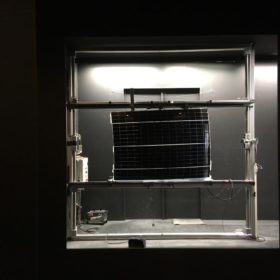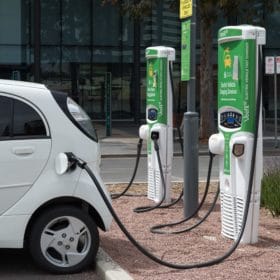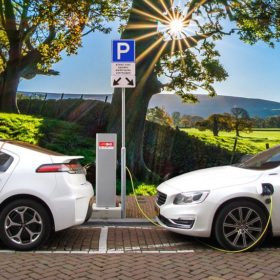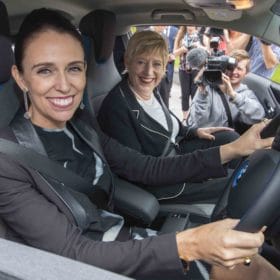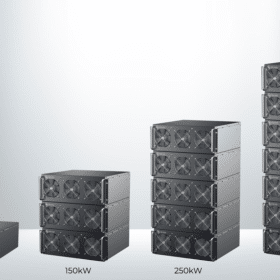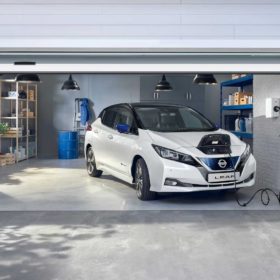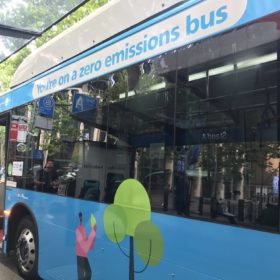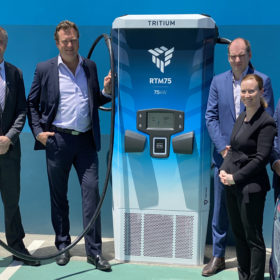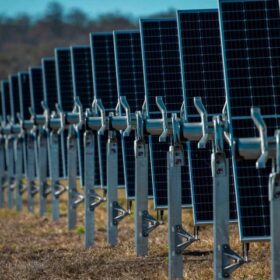Vehicle-integrated PV reduces EV charging time in sunny regions by 40%
Dutch scientist Bonna Newmann spoke with pv magazine about the present and future of vehicle-integrated PV from a technological and economic perspective. Solar panels installed on cars could have a payback time of only three or four years and ensure 10,000 km of pure PV-generated road travel per year, she said. Furthermore, if you live in a sunny place, you can drive an electric car with solar panels for weeks during summertime, without the need for recharging, she pointed out.
ARENA’s Future Fuels Fund gets the green light
The first round of funding for the Australian Renewable Energy Agency’s Future Fuels Fund is now open to applicants. The first round will look to expand the fast charging network for battery electric vehicles in Australia’s major population centres in an effort to encourage the individual and fleet transition to electric vehicles.
Electricity networks to manage EV charging in ARENA funded trial
The Australian Renewable Energy Agency is funding Jemena to the tune of $1.6 million toward a new trial in which various electricity networks in Victoria, ACT, and Tasmania will manage residential EV charging to better prepare the grid for a time when mass charging will take place at peak periods.
How to cut emissions from transport: ban fossil fuel cars, electrify transport and get people walking and cycling
For the transport sector, which is responsible for half of New Zealand’s energy-related emissions, the commission suggests a sweeping set of changes to electrify the country’s car fleet and to replace imported fuels with local renewable electricity. It’s exciting to see a national-level plan that actually cuts emissions. But it raises two questions: is it feasible, and is it the best or only option?
Rectifier unveils EV charging converter said to remedy manufacturers’ ‘pain points’
Australia’s Rectifier Technologies has unveiled its latest electric vehicle charging technology, which the company says is flexible, reduces grid stains and opens the door to High Powered Charging in urban areas.
GM’s all-electric push is wake-up call for Australia: EVC
The Electric Vehicle Council (ECV) has taken a swipe at Australia’s politicians, claiming they are “Holden” the nation back after automotive giant General Motors announced it is going all electric and plans to be carbon neutral by 2040 in its global products and operations.
‘Hydrogen a distraction’: WA Professor on why lithium batteries have the upper hand for transport
Examining the situation from an economic and historical perspective, Professor Ray Wills says it’s “unlikely” hydrogen will manage to overtake batteries as the preferred transport fuel.
Leaked government report highlights risks with EV taxes
Plans to introduce new taxes for electric vehicles (EVs) have been undermined by a leaked government paper which warns applying new charges without other support for the technology could discourage Australia’s move to electric and low-emissions vehicles.
Electric buses coming early, NSW to transition entire fleet by 2030
New South Wales Minister for Transport and Roads, Andrew Constance, has announced an accelerated 2030 target for the transition of the NSW Government’s 8,000 strong bus fleet. With buses moving that quick Sandra Bullock must be behind the wheel.
Tritium launches scalable EV charging solution
Brisbane-based global EV charging powerhouse Tritium has unveiled a scalable solution which will give peace of mind to network operators and governments the world over. The solution, launched in tandem with the next-gen RTM75 DC Fast Charger, knocks down one of the few remaining obstacles to large scale EV charger uptake.
